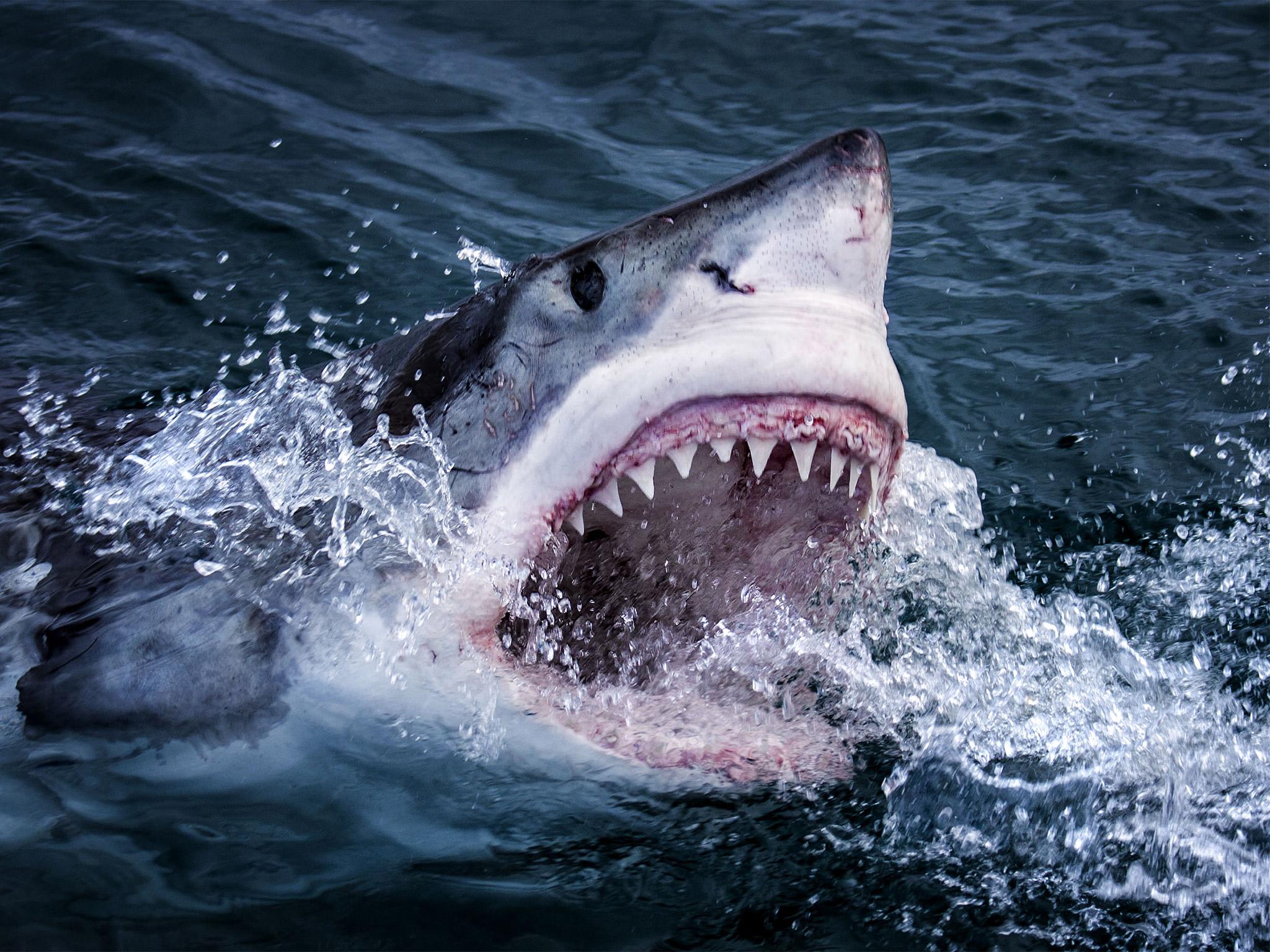Shark facts: The fearsome fish in numbers
As a new BBC series aims to rehabilitate the great white shark’s image as a terrifying killer, we look at some facts surrounding the ocean's most dangerous predator

:: 510 species of shark have been identified, as of April 2015.
:: On average, four humans a year are killed by sharks in unprovoked attacks. There were three human fatalities in 2014.
:: An estimated 100 million sharks are killed every year by commercial fishing – 11,000 an hour.
:: Two-thirds of a shark’s brain is devoted to smell. Each nostril smells independently, detecting small differences in odour, allowing sharks to smell in stereo and to track scents over vast distances.
In pictures: 'Shark', BBC's pioneering new wildlife series
Show all 10:: The skin of all sharks is armoured with dermal denticles – teeth-like structures coated in enamel. Artificial shark skin is used for streamlining (in sport, aviation and motoring) and in medicine to create bacteria-resistant surfaces.
:: Sharks’ heads are covered with hundreds of gel-filled pores called Ampullae of Lorenzini, which help detect the electrical field of prey and act like a compass to help navigate using the earth’s magnetic fields.
:: The longest migration tracked was by a tiger shark called Harry Lindo, who travelled 27,000 miles in three years. A great white called Nicole, named after Nicola Kidman, undertook the fastest recorded long-distance migration of 12,400 miles in nine months.
:: Sharks have existed for 400 million years, predating the dinosaurs.
:: More than 30 species of shark are found in Britain’s coastal waters. The largest is the 25-foot-long basking shark, which visits in summer months. The fastest shark, the mako shark, is also found in UK waters.
:: A quarter of the world's sharks and rays are threatened with extinction according to the Red List compiled by the International Union for Conservation of Nature. Oceanic white-tips in the Gulf of Mexico have declined by 99 per cent over the past 60 years.
:: The largest fish in the sea feeds on the smallest organism: whale sharks (measuring up to 13 metres) eat plankton. The smallest shark is the dwarf lantern shark at six inches long.
:: There are just 22 shark sanctuaries around the world where shark fishing is illegal.
:: A group of sharks is called a “shiver”.
:: Seals, birds and killer whales have all been documented hunting, killing and eating sharks.
:: The BBC Shark team spent 352 days at sea, 2,650 hours underwater with sharks and experienced zero shark safety incidents. About 100 people worked on the series, consuming 1,200 seasickness tablets.
Subscribe to Independent Premium to bookmark this article
Want to bookmark your favourite articles and stories to read or reference later? Start your Independent Premium subscription today.

Join our commenting forum
Join thought-provoking conversations, follow other Independent readers and see their replies